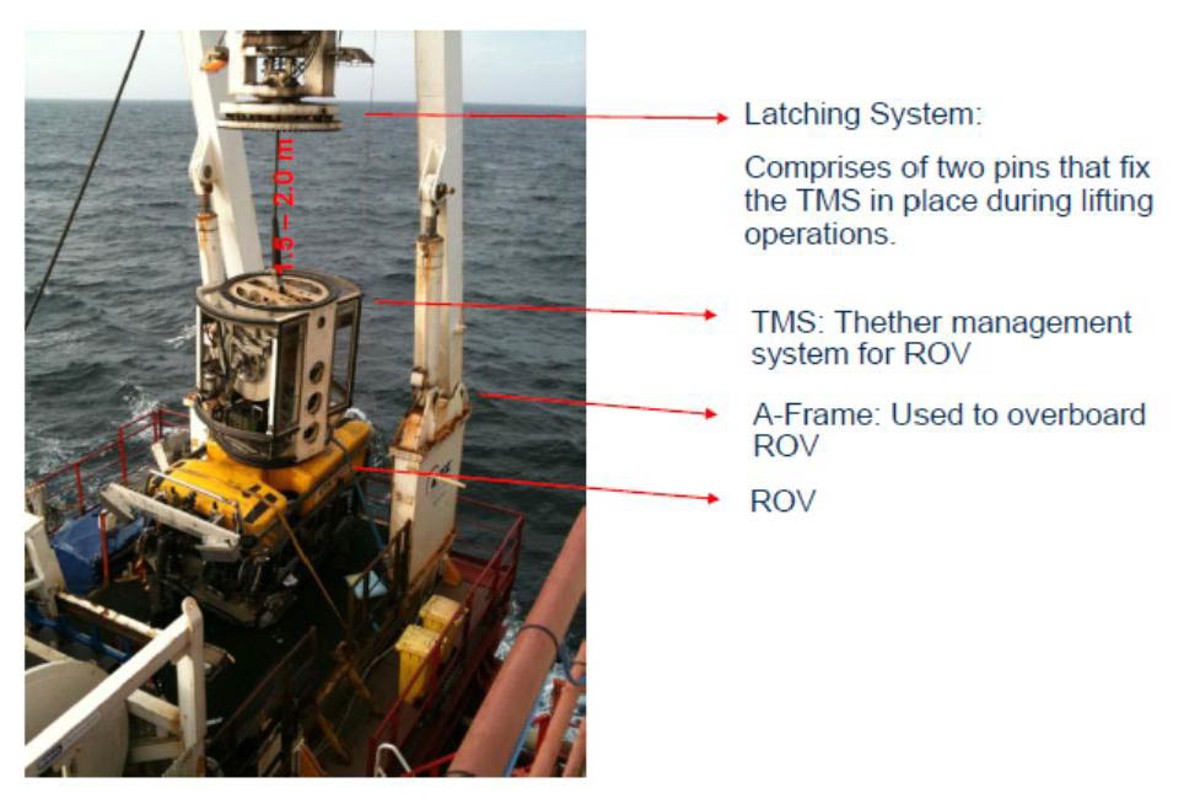Equipment damage – dropped ROV/tether management system (TMS)
- Safety Flash
- Published on 27 October 2011
- Generated on 23 February 2026
- IMCA SF 11/11
- 2 minute read
Jump to:
A Member has reported an incident in which an ROV was dropped to the deck from between 1.5 m and 2.0 m, resulting in significant damage.
What happened?
The work-class ROV was being launched via the launch and recovery system (LARS) A-frame when the LARS operator failed to recognise that both latches were not engaged. Visual inspection had only been conducted on the aft latch. The umbilical was not managed effectively resulting in unnecessary slack which allowed the system to fall the 1.5 - 2.0 m to deck.

Actions?
The following corrective actions were taken and a number of recommendations were made:
- As an interim measure, an audible alarm indicator was installed to confirm and notify that the latch mechanism has been engaged. This alarm sounds for 7 seconds.
- Markers were painted on each latch to clearly identify the latch position.
- Cameras were installed to view the latch position.
- Additional communication checks were implemented and recorded.
- Task job safety analysis (JSA) was updated to reflect additional control requirements.
The following further preventative actions were undertaken:
- An engineering review of this particular system to include development of an interlock system that would prevent over boarding or recovery of ROV unless the latch mechanism was engaged.
- An engineering review of all ROV LARS operations within the company to identify opportunity for improvement and potential hazard impacts.
IMCA Safety Flashes summarise key safety matters and incidents, allowing lessons to be more easily learnt for the benefit of the entire offshore industry.
The effectiveness of the IMCA Safety Flash system depends on the industry sharing information and so avoiding repeat incidents. Incidents are classified according to IOGP's Life Saving Rules.
All information is anonymised or sanitised, as appropriate, and warnings for graphic content included where possible.
IMCA makes every effort to ensure both the accuracy and reliability of the information shared, but is not be liable for any guidance and/or recommendation and/or statement herein contained.
The information contained in this document does not fulfil or replace any individual's or Member's legal, regulatory or other duties or obligations in respect of their operations. Individuals and Members remain solely responsible for the safe, lawful and proper conduct of their operations.
Share your safety incidents with IMCA online. Sign-up to receive Safety Flashes straight to your email.